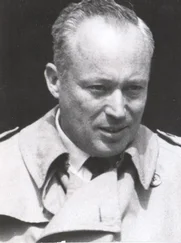Armageddon - Leon Uris
Здесь есть возможность читать онлайн «Armageddon - Leon Uris» весь текст электронной книги совершенно бесплатно (целиком полную версию без сокращений). В некоторых случаях можно слушать аудио, скачать через торрент в формате fb2 и присутствует краткое содержание. Жанр: Старинная литература, на английском языке. Описание произведения, (предисловие) а так же отзывы посетителей доступны на портале библиотеки ЛибКат.
- Название:Leon Uris
- Автор:
- Жанр:
- Год:неизвестен
- ISBN:нет данных
- Рейтинг книги:4 / 5. Голосов: 1
-
Избранное:Добавить в избранное
- Отзывы:
-
Ваша оценка:
- 80
- 1
- 2
- 3
- 4
- 5
Leon Uris: краткое содержание, описание и аннотация
Предлагаем к чтению аннотацию, описание, краткое содержание или предисловие (зависит от того, что написал сам автор книги «Leon Uris»). Если вы не нашли необходимую информацию о книге — напишите в комментариях, мы постараемся отыскать её.
Leon Uris — читать онлайн бесплатно полную книгу (весь текст) целиком
Ниже представлен текст книги, разбитый по страницам. Система сохранения места последней прочитанной страницы, позволяет с удобством читать онлайн бесплатно книгу «Leon Uris», без необходимости каждый раз заново искать на чём Вы остановились. Поставьте закладку, и сможете в любой момент перейти на страницу, на которой закончили чтение.
Интервал:
Закладка:
So, assured of Western timidity again, knowing Polish hatred of Russia, Stalin thought it foolish to gamble further with the West.
Instead, he made a pact with Hitler. Hitler wanted the pact because Poland was next on his timetable. In the event France and Britain should honor their commitment to defend Poland Hitler did not want to risk the possibility of a two-front war. So, he set out to “neutralize” Russia. Stalin, with a clear understanding, made himself a shrewd bargain. He got half of Poland, the Baltic States, and a clear field to clean up some defensive positions in Finland, and what is more, purchased precious time to build for the attack he knew would come, sooner or later, from Germany.
In 1939 Poland was attacked. By agreement, Russia knifed Poland in the back and took the eastern half of the country. Many Poles escaped. Some got to England, where they formed the Polish Government-in-Exile. This was the universally recognized body speaking for a sovereign Poland.
A year and a half after Poland’s demise, Russia was attacked by Germany and thereby became the “official” ally of England. From the outset it was a strange alliance. An alliance by default ... a shotgun wedding ... and a temporary arrangement of mutual convenience.
From the very start the Russians showed the coldness and aloofness they held for their allies. There was never a thank-you for the convoys of Allied material which poured into Russia through the suicide Murmansk run. The death of ships and men in the icy waters of the Barents Sea became a legend of horror. Those who survived and landed in Murmansk and Archangel were greeted by a further coldness to match the waters.
But, the Allies kept their silence, for Russia was drawing hundreds of thousands of casualties which might have been their own.
As part of the inside diplomatic maneuverings, Russia recognized the Polish Government-in-Exile in London known as the London Poles. This took place in 1941. Russia made this recognition in order to begin pressure on the West for promises of postwar border changes in Poland.
For the sake of window dressing, the Russians went so far as to “officially” dissolve the Comintern, the instrument of international Communism. This was done to pacify the Allies. Hansen was certain, from intelligence reports, that the Comintern in reality never ceased to exist for a moment. He was positive that an intense training of foreign agents to seize a number of countries was always active and now ready to move, particularly in Germany, Poland, and the Slavic countries.
Roosevelt and Churchill retained a certain timidity about shoving Stalin because of the fact that Russia bore the brunt of the war. Stalin, however, had no such inhibitions. He continued unceasing pressure for the West to agree to postwar settlements. These he could now get “legally.” The other type “settlements” would be obtained later.
The London Poles protested Stalin’s proposed postwar border changes. In one of the great paradoxes of the war, the British and Americans kept the London Poles from becoming too boisterous out of fear of offending Stalin.
This “bothersome” Polish question exploded in 1943.
When Poland was attacked by Germany in 1939 many Polish officers and men chose to flee to Russia as the lesser of evils and throw themselves on the tender mercy of the Soviet Union. Many thousands of Polish officers were interned with the hopes of fighting another day.
Fifteen thousand of these Polish officers were put into camps in a place called the Katyn Forest. From the moment the Russians interned them, they were never heard from again. Hansen, who worked very closely with the British, knew the London Poles had made innumerable demands to know what became of these officers. The Russians never gave them an answer.
In 1943 the German armies advanced into Russia and came upon the Katyn Forest. They claimed to have found the bones of these 15,000 “missing” Polish officers in common graves, the victims of a massacre. The Germans invited the International Red Cross to investigate and the London Poles joined that demand for an investigation.
The Russians became indignant and broke off recognition of the London Poles. Again, Britain and America tried to calm the pesky Poles and the charge was never allowed to be investigated.
Hansen reckoned that 15,000 human pawns were slaughtered because these Polish officers stood as a potential force against Russian aspirations in postwar Poland.
Later, when the Russians recaptured Katyn, they conducted their own closed investigation and said it was really the Germans who had murdered the Polish officers.
There were, of course, two sides and two stories in the Katyn massacres, but Hansen believed that history had proved the Russians capable of just such a slaughter. They had already made it clear they were going to have a Poland they could dominate on their border as a buffer against future invasion from the West.
There were precedents to show they would murder for political gain. Hansen reckoned the Russians had killed in excess of ten million of their own citizens in twenty-five years under Communism. Despite the frostings of peace and brotherhood coming from joint conferences he felt them neither peace-loving, kind, gentle, nor caring much for the brotherhood of man.
After the Russian Revolution the Communists first liquidated the upper class, from the Czar on down, and the nationalists of Ukrainia and White Russia, with the dispatch of the guillotine days after the French Revolution. Hansen knew of this from firsthand observation.
At the end of the 1920s Stalin initiated his collectivization of the farmlands. There were millions of prosperous or semiprosperous peasants in a class known as the Kulaks. Terror squads from Moscow swooped into the farmlands with orders to “liquidate the Kulaks as a class.” History will never record the true number of Kulak families murdered on the spot or shipped to Siberia as slaves. Certainly it was no less than five million men, women, and children. Losses in crops ran in millions of bushels, millions of acres. Losses of cattle, goats, sheep, pigs ran into tens of millions. The animal losses seemed to annoy Stalin and his planners far more than the human losses.
Hansen estimated from all his sources of information that some thirteen million Russian or Soviet citizens had been forced into slave labor during the two and a half decades of Communism.
The most notable slaughter, however, was to come later during the purge trials between 1936 and 1939. A reign of terror paralleled only by the Spanish Inquisition, by the Nazis, or by the Mongol hordes was clamped on the Soviet Union. One half to three quarters of the teachers, lawyers, doctors, writers, scientists, military men, intellectuals were hauled before “People’s Courts” after confessions for alleged crimes had been brutally beaten from them. They were then taken out and shot or hanged. No one was safe from the mania of Stalin. Crimes had such alluring names as “deviationism,” “cosmopolitanism,” “Trotskyism,” “adventurism,” “speculationism.”
In the beginning of the war many Ukrainians, White Russians, and even Russians themselves had looked upon the German as a liberator. When the Russians reconquered these lands the carnage of vengeance was epic. Hansen believed Stalin to be the supreme monster of all ages.
The final chapter of the Polish tragedy was played out in 1944, just before the Allied landing in Normandy. Russia rolled back the German lines, moved into the Balkans, and in the north came to the Vistula River directly across from Warsaw.
As the Russians advanced on Warsaw they urged the Polish Underground Home Army to stage a rebellion. The Home Army was the official military arm of the London Poles ... fairly large in numbers and fairly well armed with light weapons. In Warsaw, some 40,000 of the Home Army seized the strong points and controlled the city as the Russian “liberators” approached.
Читать дальшеИнтервал:
Закладка:
Похожие книги на «Leon Uris»
Представляем Вашему вниманию похожие книги на «Leon Uris» списком для выбора. Мы отобрали схожую по названию и смыслу литературу в надежде предоставить читателям больше вариантов отыскать новые, интересные, ещё непрочитанные произведения.
Обсуждение, отзывы о книге «Leon Uris» и просто собственные мнения читателей. Оставьте ваши комментарии, напишите, что Вы думаете о произведении, его смысле или главных героях. Укажите что конкретно понравилось, а что нет, и почему Вы так считаете.











